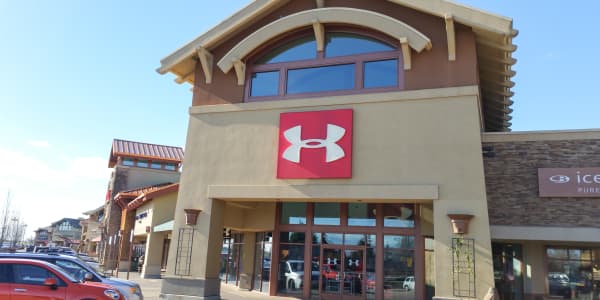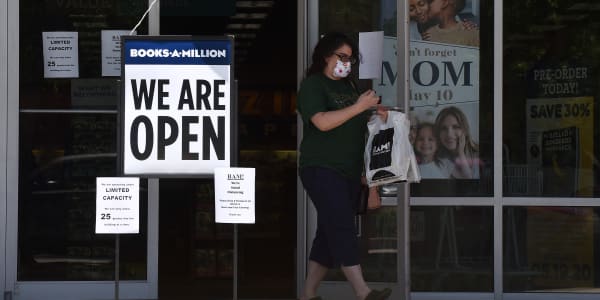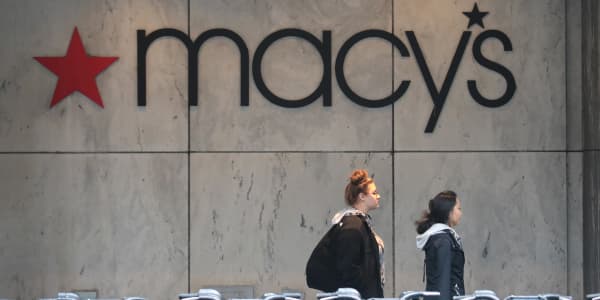Shares of major packaged food companies are trading lower on investor worries the Amazon deal to buy Whole Foods Markets marks a seismic shift for retailers.
"This news today is just a recognition that Amazon is making a larger play for the grocery space," said Morningstar analyst Erin Lash in Chicago. "There's uncertainty as to what that means for traditional-branded packaged food companies."
At the same time, analysts suggest the consolidation in grocery segment is likely to continue and give these merged entities more leverage to negotiate better terms with major food suppliers.
Amazon's $13.7 billion deal for Whole Foods follows last year's merger between Ahold and Delhaize, which consolidated chains such as Hannaford, Food Lion, Stop & Shop and Giant under one entity. There's also been reports private equity firm Cerberus Capital is on the prowl for more grocery deals after earlier buying Albertsons and Safeway.
"There's probably some fear in the market that you'll have more power shifting to the retailers, which could put pressure on the producers and the manufacturers," said Joseph Agnese, an analyst with research firm CFRA Research in New York.
According to Agnese, there's investor worries the Amazon-Whole Foods marriage will essentially "take over food retailing" and there will be "another large player like Wal-Mart who can exert power and push back against the manufacturers, which would have a long-term margin impact."
Wal-Mart already is a powerful force to be reckoned with in the packaged food category and is the largest customer of most of the U.S.-based consumer packaged goods manufacturers. For example, Kraft Heinz, General Mills, Campbell Soup and others in the space derive at least 20 percent of their net sales from Wal-Mart Stores.
In trading Friday, shares of Kraft Heinz, ConAgra, Kellogg, General Mills, Hormel, Tyson, Hershey and Campbell Soup are all down 2 percent or more. Some food packaged companies such as Hain Celestial, Post Holdings and United Natural Foods are down 3 percent or more and have bigger exposure to the organic sector and are major customers of Whole Foods.
In the case of Post, Whole Foods is one of the largest customers in Post's private brands segment. United Natural Foods, which derives more than a third of its sales from Whole Foods, is down more than 12 percent but its current supply and distribution deal is set to go until 2025.
Lash said the only major packaged foods companies not selling off are the European ones such as Nestle but she said that may also be due to the Swiss company's announcement Thursday it may put the U.S. confectionary business on the block.
"If you look across the board, several CPG (consumer packaged goods firms) names have already had a long-standing relationship with Amazon," said Lash. "Details are quite sparse at this time in terms of what Amazon's intentions are, how this ultimately impacts the rest of the space."
Amazon has been pushing more aggressively into the natural and organic space with its online grocery business and partnership with Whole Foods rival Spouts Farmers Market. Several of the organic and natural foods suppliers of Whole Foods also have deals with Sprouts, and the Amazon takeout of Whole Foods likely will change the mix of the relationship. Sprouts didn't respond to requests for comment.
"Growth in the natural and organic channel has far outpaced traditional grocery," said Lash. She said this has been particularly true with the so-called center of the grocery store — the area with canned and packaged foods — lagging the perimeter of the store where fresh produce and proteins such as meat are sold.
Analysts suggest one reason Amazon went after Whole Foods is because the company's strong presence with younger consumers fits well with Amazon's ongoing strategy to expand its online grocery business. Also, having the Whole Foods stores is another way to allow Amazon to have curbside pickup of online orders since Amazon will get control of more than 430 stores under the acquisition.
Indeed, NPD's research shows the percentage of millennial customers who bought from Whole Foods in the past year is up while it's down slightly for the broader demographic of all American consumers.
"Amazon, which is without question the 800-pound gorilla in the e-commerce space, is betting very heavily on people wanting fresh food," said David A. Steinberg, co-founder and CEO of Zeta Global, a data and analytics firm.
Added Steinberg: "A lot of people figured that companies like Amazon would have to focus on packaged goods [because they are less perishable]. If Amazon is saying we can make this work with the organic leader, I think that's a major negative for the prepared food and packaged food space."





